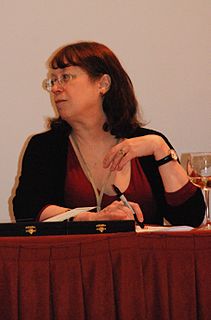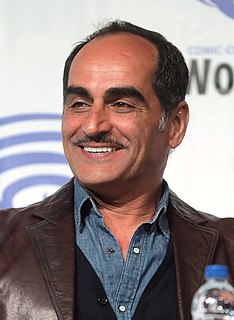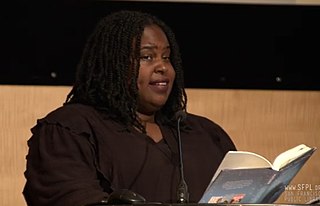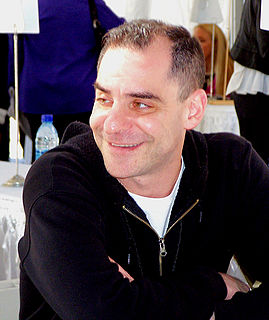A Quote by Malcolm Gladwell
The iPod is clearly a tipping point (and I'm not quite sure it is a wholly positive development), because it is a revolution in the way that we consume creative property, which I would call art. It has radically changed the relationship between the artist and the audience, how money changes hands, and how much money changes hands. Music was the first, and books are coming next. The Kindle or some form of electronic book is clearly inevitable, and it will massively reshape how books are sold, who pays for them, and how they're consumed. It is going to be really fascinating.
Quote Topics
Art
Artist
Audience
Because
Between
Book
Books
Call
Changed
Changes
Clearly
Coming
Consume
Consumed
Creative
Development
Electronic
Fascinating
First
Form
Going
Hands
How
How Much
How Much Money
Inevitable
iPod
Massively
Money
Much
Music
Next
Pays
Point
Positive
Property
Quite
Radically
Really
Relationship
Revolution
Sold
Some
Sure
Them
Tipping
Tipping Point
Way
Which
Wholly
Will
Would
Related Quotes
I feel lucky that I read so many books as a kid because I know that no matter how much I appreciate a book now, and I can love a book very much, it's never going to be that childhood passion for a book. There's some element, something special about the way they're reading books and experiencing books that's finite.
All of my movies are about how I wish the world would work. I've made very few movies about how the world worked. I could name them on one and a half hands, about how my movies have been very reflective of how the world was exactly. A lot of my movies are really about the way I wish the world was, and that's what this whole art form is all about. It's an interpretive art form.
When I first learned about Abrams and saw the types of books they were making, I knew I wanted my books to be published by them. Abrams books are special-when you hold one in your hands, you have the feeling that this book needed to be made. I once heard an artist say that books are fetish objects-I think Abrams gets that, because their books demand to be treasured. So who better to give comics art its proper due? I feel privileged to have found a home with Abrams.
Post-publication I have been surprised at the limited resources publishers have to promote books. I certainly knew that being a new author, I would have to do a lot of self-promoting, but it really has surprised me just how much I have had to do myself to make sure the books get into the hands of young people.
I have let half-decades elapse between books because books have to be writte and writing is awful, but if you are the type of person who makes things, there is no profit in worrying about how or why or when the next project will come into being beyond simply acknowledging that it is inevitable that it will be very soon.
I enjoy journalism; anybody does. You see the results immediately; you've got an immediate audience instead of having to wait for your audience as you do if you're writing a book, and you get a bit of money coming in, and you can see more clearly how you're paying the bills. But it's not a good position for the serious novelist to be in.
To me, art is the capacity to experience one's innocence: craft is how you get to that point. Maturity in a musician would be the point at which one is innocent at will. At that point the relationship between music and the musician is direct and reliable.
The relationship with music is always mysterious: when it works, you can never tell. You can never guarantee when it's going to work. You can only to put yourself in a place where it's more likely to happen.
…* to learn that money makes life smooth in some ways, and to feel how tight and threadbare life is if you have too little. * to despise money, which is a farce, mere paper, and to hate what you have to do for it, and yet to long to have it in order to be free from slaving for it. * to yearn toward art, music, ballet and good books, and get them only in tantalizing snatches.
It was actually books that started to make those pockets of freedom, which I hadn't otherwise experienced. I do see them as talismans, as sacred objects. I see them as something that will protect me, I suppose, that will save me from things that I feel are threatening. I still think that; it doesn't change. It doesn't change, having money, being successful. So from the very first, if I was hurt in some way, then I would take a book -- which was very difficult for me to buy when I was little -- and I would go up into the hills, and that is how I would assuage my hurt.



































